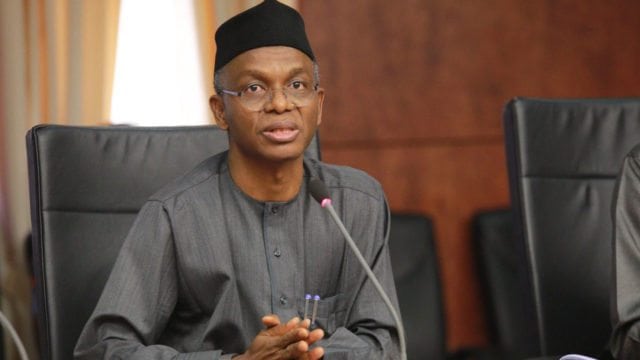Expectedly, the two major political parties- the ruling All Progressives Congress (APC) and the opposition People’s Democratic Party (PDP) have been at the forefront of the events that precede the election.
For the PDP, it is a period to get back to the hearts of the electorates to return to power after an interrupted 13 years in ruling the state through its candidate Musa Wadda.
The APC, on the other hand, is in a battle to defend the title of its candidate Yahaya Bello, who has been governor for a little short of four years.
Campaigning for election in Nigeria is always two-way traffic for contestants. It is usually more difficult for an opposition party to try galvanizing the electorates to buy into their vision even with limited financial resources and influence.
The ruling party (in most cases) don’t do much. They rely on the resources at their disposal couple with the ‘power of incumbency’ and most importantly, they are always boastful of the achievement(s) of the current tenure and promise to consolidate on them if re-elected.
However, the reverse is the case for the APC and its candidate governor Yahaya Bello of Kogi State who has successfully mobilised the ‘high and mighty’ in Nigeria to beg for re-election to office.
Surprisingly, Yahaya Bello’s entourage of ‘beggers’ was led by Nigeria’s first lady Aisha Buhari, who enjoys the reference of an advocate of social justice in Nigeria.
Speaking at the APC rally in Lokoja, Kogi State, Mrs Buhari tendered apologies on behalf of Bello over unpaid 18 months salaries.
“But this time, vote for him for continuity of payment of salary on time,” Mrs Buhari said. Her pleas were not only shallow, they also belittled the sufferings of the people.
Mrs Buhari subsequently invited the governor to the podium, saying, “I want Yahaya Bello to talk to you about timely payment of salary.”
She blamed the non-payment of salaries on delay from a verification process.
Kaduna State governor Nasir El-Rufai had done the usual (of Nigeria politicians when seeking election votes) when he knelt before the crowd, pleading forgiveness for Bello’s four years rule in the state.
“Let me refer back to Kaduna State governor’s speech where he had to kneel and say the people should forgive and forget,” Mrs Buhari said before addressing the crowd.
Deputy Governor of Edo State, Philip Shaibu, also knelt down next to El-Rufai. However, Bello did not join them in kneeling down.
“On his behalf, I’m kneeling down, to beg all of you to forgive Yahaya Bello if he has offended you,” El-Rufai said.
“He is young and he can make mistakes. He cares about you. He cares about this state. He has brought progress to this state; he has brought young people and women into government.”
Asides Bello’s offences, Kogi State is currently wallowing in its highest debt status.
Figures provided by Nigeria’s Debt Management Office (DMO), showed that Kogi State’s domestic debt rose from N10.30bn in 2014 to N105.14bn in 2019. The state’s external debt grew from $35.79m in 2014 to $31.58m as at June 2019.
Smartly, the PDP have centred their campaign on the reasons Yahaya Bello has been apologising and begging for forgiveness.
The PDP in Kogi State believes that the emergence of Yahaya Bello as the candidate of the APC has made the election a walkover for their candidate Wadda.
Kogi PDP spokesman Bode Ogunmola said the choice of Bello would ensure an easy win for the PDP due his poor performance and public resentment of his administration.
“It is a fact that Governor Bello cannot win any local government given his poor performance and the way and manner the resources of the state are being massively looted,” Ogunmola said in a statement.
“His desperation to return is to save himself from going to prison over looted funds. That was why he had to spend hugely to get strong contenders disqualified.”
While politicking is a norm before every election, the choice of the people will be made on the ballot. But will that choice be respected by politicians?
THISDAY

